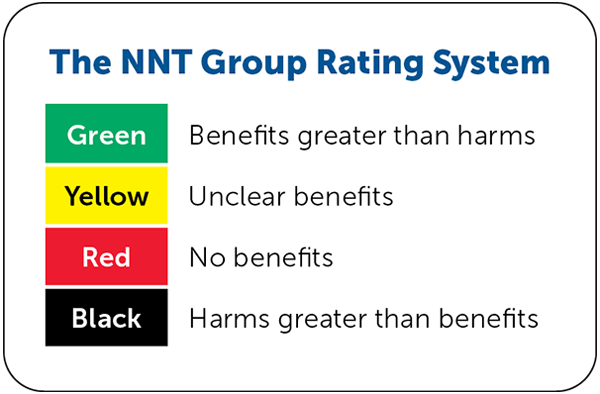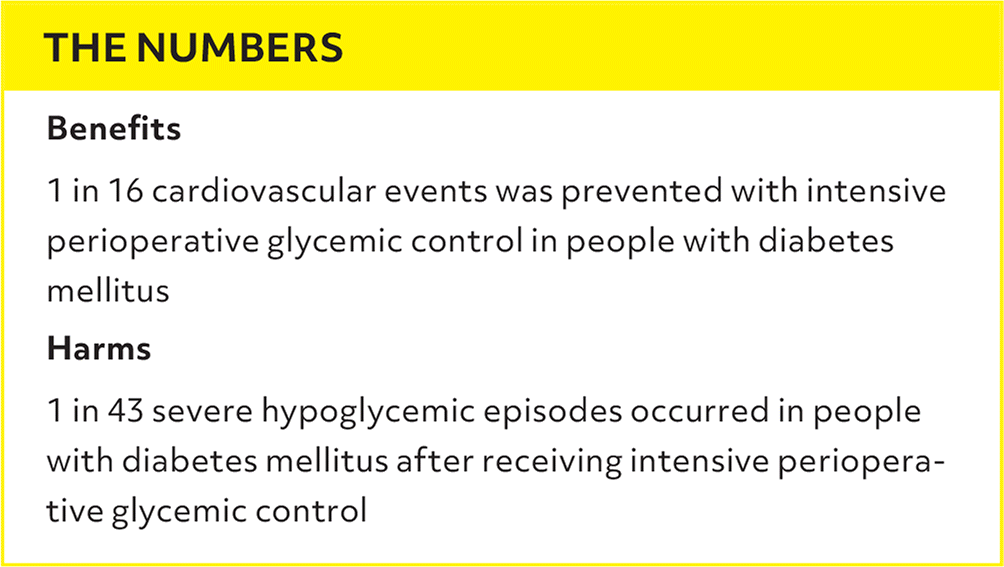
Am Fam Physician. 2024;110(2):193-194
Author disclosure: No relevant financial relationships.

DETAILS FOR THIS REVIEW
Study Population: 20 randomized controlled trials, with 2,670 adults (average age of 56 to 73 years) with diabetes mellitus; allocated to an intensive (n = 1,320) or a conventional (n = 1,350) glycemic control target in a perioperative hospital setting
End Points: Primary outcomes: all-cause mortality, hypoglycemic episodes, severe hypoglycemic episodes, infectious complications; Secondary outcomes: cardiovascular events, renal failure, length of intensive care unit stay, length of hospital stay, health-related quality of life

| Benefits |
| 1 in 16 cardiovascular events was prevented with intensive perioperative glycemic control in people with diabetes mellitus |
| Harms |
| 1 in 43 severe hypoglycemic episodes occurred in people with diabetes mellitus after receiving intensive perioperative glycemic control |
Narrative: Approximately 11.6% of U.S. adults and 10.5% of adults worldwide have diabetes1,2; these individuals are at increased risk of perioperative complications.3,4 Previous limited data suggested that patients without diabetes benefit from intensive perioperative glycemic control, but minimal evidence was found targeting outcomes for patients with diabetes.5 Further, a 2012 Cochrane review found no clear differences for most outcomes when comparing intensive with conventional perioperative glycemic control in people with diabetes, but a post hoc analysis suggested increased hypoglycemic events with intensive control.6 An update of the 2012 original, this Cochrane review includes several new trials.7
Subscribe
From $180- Immediate, unlimited access to all AFP content
- More than 125 CME credits/year
- AAFP app access
- Print delivery available
Issue Access
$59.95- Immediate, unlimited access to this issue's content
- CME credits
- AAFP app access
- Print delivery available
